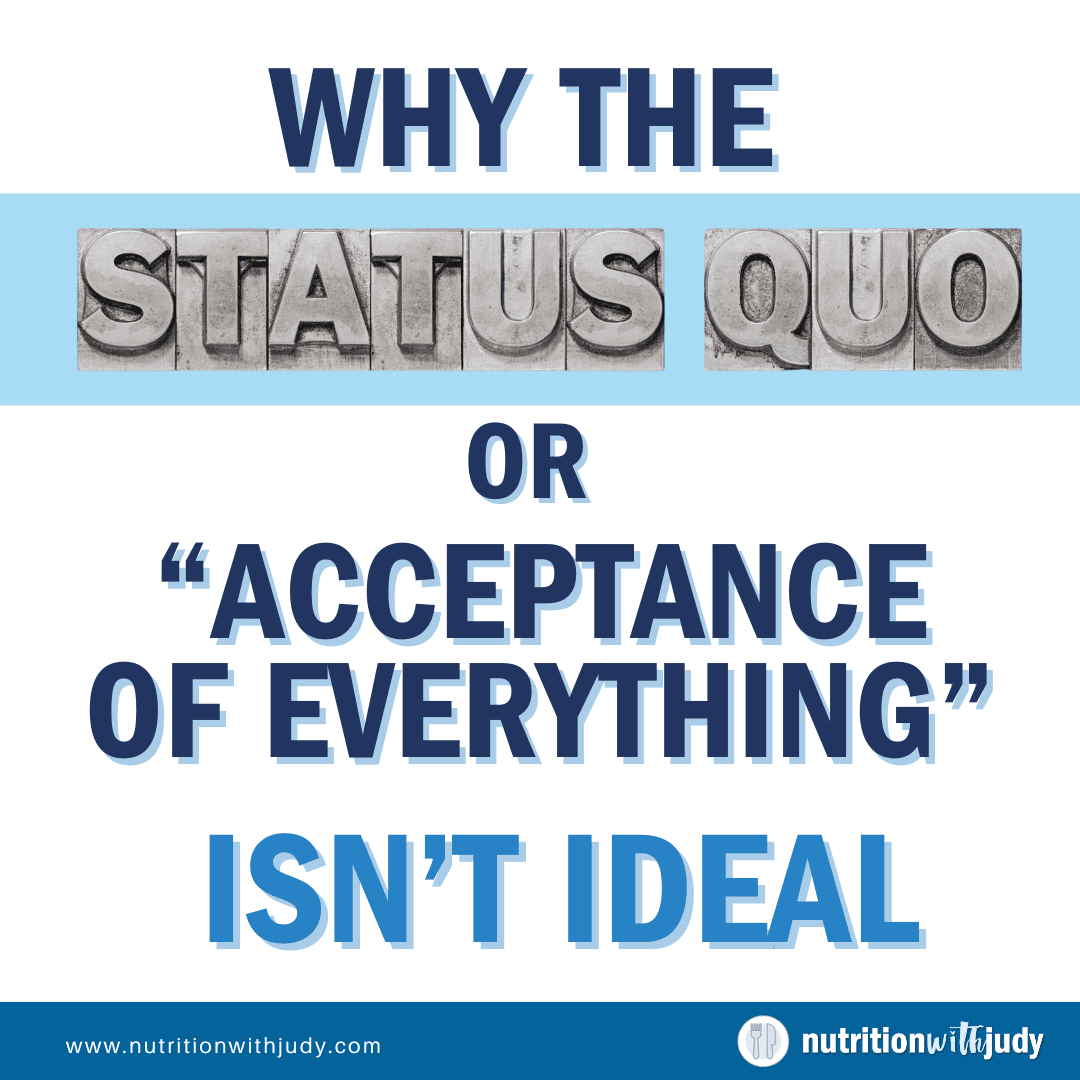

Why the Status Quo or “Acceptance of Everything” Isn’t Ideal


Original Publish Date: 3/25/23
I don’t know how to discuss this without getting in trouble. If you’ve signed up for my newsletter, ideally, you know this is coming from a good place and a place of open discussion.
Nowadays, we can’t talk about anything without accidentally offending someone. There are no longer words we can say without throwing offense at a certain someone. Saying, “Hey guys!” on my YouTube channel and podcast is insulting, as I’m inherently excluding women.
Why?
I grew up in Los Angeles, and we addressed everyone as guys— it wasn’t a male-superiority thing. I’m not being brainwashed to think only one gender exists or is superior.
The Impact of Not Trying to Offend Everyone
Recently I came across Stanford University’s “Elimination of Harmful Language Initiative.” You basically can’t say anything without a filter. Otherwise, you’re offending someone.
Throughout humanity, countless stories share moments of adversity and how in these moments, the most remarkable changes in people occur. In movies, we root for the underdog. We love the stories of overcoming hardships and still coming out on top.
Nowadays, we accept “own your truth” or “my truth is my truth.” (In my world of things, there is only one source of truth.) But if we accept all these rules and different interpretations of reality, how do we experience conflict or struggle to become our best selves?
Life is hard. While some people advocate for loving and accepting every one of any size, what does that really mean? “Let them just be,” they say.
But there is no just be. If you’re not growing, you’re slowly dying. This world is meant to bring challenges and struggles, so we blossom into the person we are meant to be. We move up each school grade level by overcoming complex subjects. We get raises and promotions when we succeed. Butterflies only become butterflies if they make it out of a cocoon. We only have precious babies after a difficult birth.
This is life.
When we become a society that is scared to say things for fear of offending someone, we essentially are doing the opposite of what this “acceptance” movement is all about.
Are we letting people thrive or slowly allowing for their demise?
Life is what we focus on. How many of us watch mainstream news and feel doom and gloom? Fear sells. Physiologically this releases cortisol (a stress response), which makes us crave more sugar and impacts our emotions and hormones (and nervous system).
When we’re told genetics makes us obese or that our skin color makes life harder, even if there were truth to that, what tangible benefit does that bring? Other than anger or self-pity, what is the point? Anger (and fear) often limit growth. So when we feel these are the cards we are dealt, what option of change or growth do we have?
This whole acceptance movement causes a self-fulfilling prophecy. “I can’t control my obesity because it runs in my family, so there is no point in controlling my diet and lifestyle.”
We are allowing complacency and (harmful) status quo to be accepted.
45 to 55% of what we do daily are habits. Habits can free us up but can also imprison us. We have 40,000 to 60,000 thoughts daily, most of which are negative (a survival mechanism). Since humans live in patterns—if we recognize them—we can change the pattern (or collection of habits) as needed and improve our lives.
If we were to see reality for what it is (e.g., you are obese because of your diet and lifestyle), then there’s something we can do about it. That’s empowerment. Speak the truth so real change can happen. We’re making our culture and people soft, leading everyone to medicate and self-soothe with the addiction of choice.
A depressed, overweight teen may jump from diet to diet, drug to drug (because everyone is supportive), and they may eventually blame themselves, feel more depressed, and even consider ending their life.
Statistics and Reality
But what if we didn’t accept this as normal or common? What if we stopped medication as the first solution?
Here’s the reality:
- 60% of millennials who make over six figures live paycheck to paycheck. (Source)
- Over 50% of millennials, Generation Z and X live paycheck to paycheck (Source)
- Millennials aged 34 to 36 in 2017 were 11 percent less healthy than Gen Xers aged 34 to 36 in 2014. (Source)
- Millennials have had a double-digit diagnosis increase for eight of the top 10 health conditions. (Source)
- Millennials are more affected by behavioral health conditions than physical, with the highest increases shown in rates of major depression and hyperactivity. (Source)
- Millennials are diagnosed with anxiety more than any other generation (and medicated). (Source)
Whatever we are doing is not working.
We need to have open discussions and candid conversations to be good neighbors. Maybe then we won’t go after materialistic goods or a number on the scale to prove our worth. Perhaps we’ll try to incorporate lifestyle and dietary changes before popping pills.
Medicating children should be a very, very last resort. (Sorry)
Speak up because you’ll offend someone at worst, but at best, you can change someone’s life (or they may change yours.) And that’s a risk I’m willing to take.
In health,
Judy



